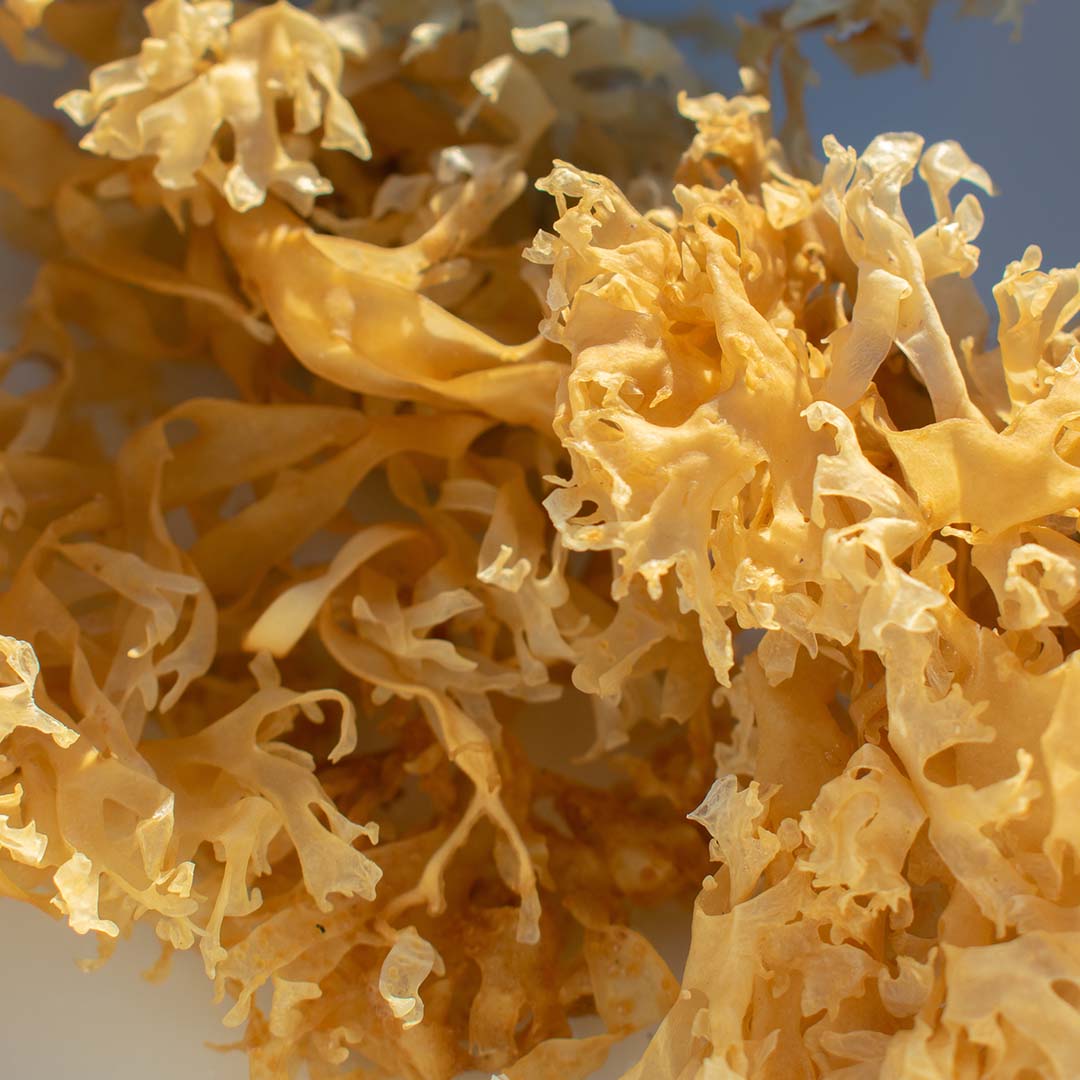Sea Moss
Back to ingredients
From: Europe, Ireland
Form: Plant extract
Benefits of Sea Moss
- Thyroid function
- Healthy skin
- Macronutrient metabolism
- Energy
What is Sea Moss?
Also referred to as Irish sea moss, Chondrus crispus is a species of red seaweed (algae) that is relatively small in size. It grows on the Atlantic shores of North America and some parts of Europe.
Seaweeds are naturally rich in bioactive compounds including polyphenols, sterols, alkaloids, flavonoids, proteins with essential amino acids, and poly-unsaturated fatty acids.
Seaweed contains key nutrients including Iron, a lack of which can contribute to tiredness and fatigue. It also contains B vitamins, as well as phytochemical compounds which support brain function. When incorporated into the diet, seaweed initially interacts with the gastrointestinal tract’s microbiome, and this interaction can produce small ‘bioactive’ molecules, which support the growth of healthy bacteria in producing neurotransmitters like serotonin (our happy hormone) and GABA (a calming neurotransmitter). As a result, they can support both intestinal health and brain health.
Irish sea moss also contains good amounts of Iodine, which contributes to normal thyroid function and supports normal macronutrient metabolism. A healthy metabolism helps the effective conversion from the food we eat into energy sources for our body and mind.
Sea moss also provides good amounts of Vitamin A and Omega 3 fatty acids, which are two important nutrients for healthy, hydrated skin.
Polysaccharides from red seaweed, including sulfated galactans, namely ‘carrageenans’, ‘agarose’,‘alginate’ and ‘agar’, have antioxidant properties. Naturally occurring carrageenan from red seaweeds have shown to have anti-inflammatory and immunomodulating properties in some clinical studies.

















